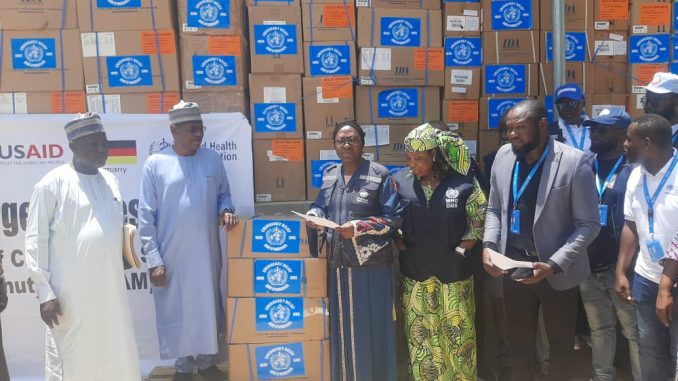
The World Health Organisation has donated cholera and acute malnutrition kits to the Borno State government to cushion the possible health challenges resulting from the flood disaster that recently ravaged Maiduguri through the collapsed Alau Dam.
Presenting the items to the state’s commissioner for health and human resources, Prof. Baba Mallam Gana, Dr Mary Brantuo, representing the WHO country representative Dr Walter Kazadi Molumbo, said the WHO team was in Maiduguri to commiserate with the government and the people of the state who were affected by the devastating flood.
She said the situation was urgent and required immediate attention.
“We know that no single entity can address the scale of challenges alone.
This is why the WHO, in collaboration with partners, remains committed to providing technical and material support.
“As we gather here, it is essential to recognise that the recent flooding has brought untold hardship to the people of Borno State. This disaster has not only displaced families but also heightened the risk of deadly diseases such as cholera and worsened the nutritional status of children already vulnerable to malnutrition,” Dr. Brantuo said.
She added that the cholera kits donated will be essential in preventing and controlling potential outbreaks.
She said in contrast, the kits would help frontline health workers combat malnutrition among children, giving them a fighting chance for a healthy future.
She added that these cholera kits contain life-saving medical supplies and treatments designed to support the management of cholera cases, saying that each cholera kit has the potential to treat up to 100 cholera patients, meaning the total number of kits provided can treat up to 600 people suffering from cholera.
In his remarks, the state commissioner for health and human resources, Prof Gana, commended the WHO for the donation, saying the flood caused health challenges affecting mostly women and children.
Leave a Reply